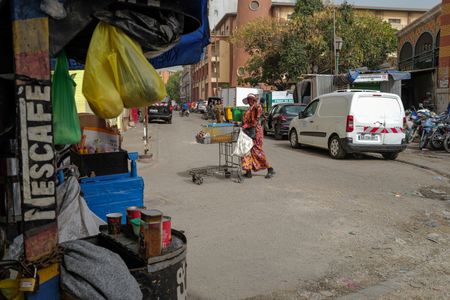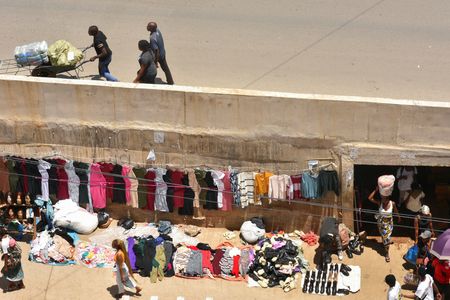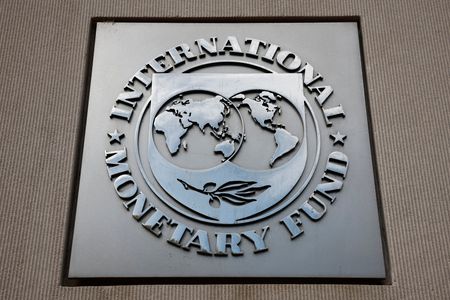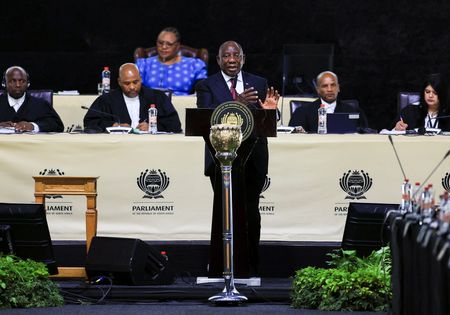By Libby George and Rodrigo Campos
LONDON/NEW YORK (Reuters) -The International Monetary Fund plans a mission to Senegal in August to address hidden debt and start talks on the “contours” of a new loan programme, it said on Thursday.
Senegal is grappling with billions in debts hidden by the previous administration, which have prompted the IMF to freeze its loan programme.
“The purpose of the mission is going to be to discuss the steps needed to bring the misreporting case to our executive board,” IMF communications director Julie Kozack said in a media briefing in Washington. “The team will also use the opportunity to initiate discussions on the contours of a new IMF-supported program for Senegal.”
Separately, another Fund spokesperson said via email that it needs more data before it can firm up its assessment on Senegal’s debt situation and also needs an agreement on key remedial measures.
The IMF’s executive board must either approve a misreporting waiver – many investors’ base case – or order Senegal to pay back previous programme disbursements. With a waiver, Senegal could negotiate a new programme.
“Once we have reached agreement on the key corrective measures, the IMF Board will be in a position to consider the Senegal misreporting case and take a decision,” a spokesperson for the Fund said in response to emailed questions from Reuters.
An agreement on these measures could be reached “hopefully within the coming weeks,” that spokesperson added.
Bonds jumped on the news. The euro-denominated 2028 bond gained more than 3 cents to bid at 82.88 cents on the euro, and the 2033 dollar-denominated bond gained nearly 3 cents to bid at 70.64 cents on the dollar.
DEBT ICEBERG
The IMF estimates – based on latest data from Senegalese authorities – that hidden debt stood at $11.3 billion by end-2023, the spokesperson added. This included a portion for state-owned enterprises of about 7.4% of GDP.
There have been a range of estimates.
S&P pegged the total hidden debt discovered since October 2024 at roughly $13 billion.
The size of the hidden debt has escalated since September 2024, when the then newly elected government said an audit of government finances first flagged the issue.
The scale dwarfs Mozambique’s infamous “tuna bond” scandal -the most recent hidden debt case, which involved roughly $3 billion.
The spokesperson said that the IMF, which has come under fire for not catching the off-the-books lending, will present information to the board on how it went undetected.
“The IMF is conducting an internal assessment and diagnostic as part of the misreporting process,” the spokesperson added.
(Reporting by Libby George in London and Rodrigo Campos in New York, writing by Karin Strohecker, editing by Dhara Ranasinghe)









